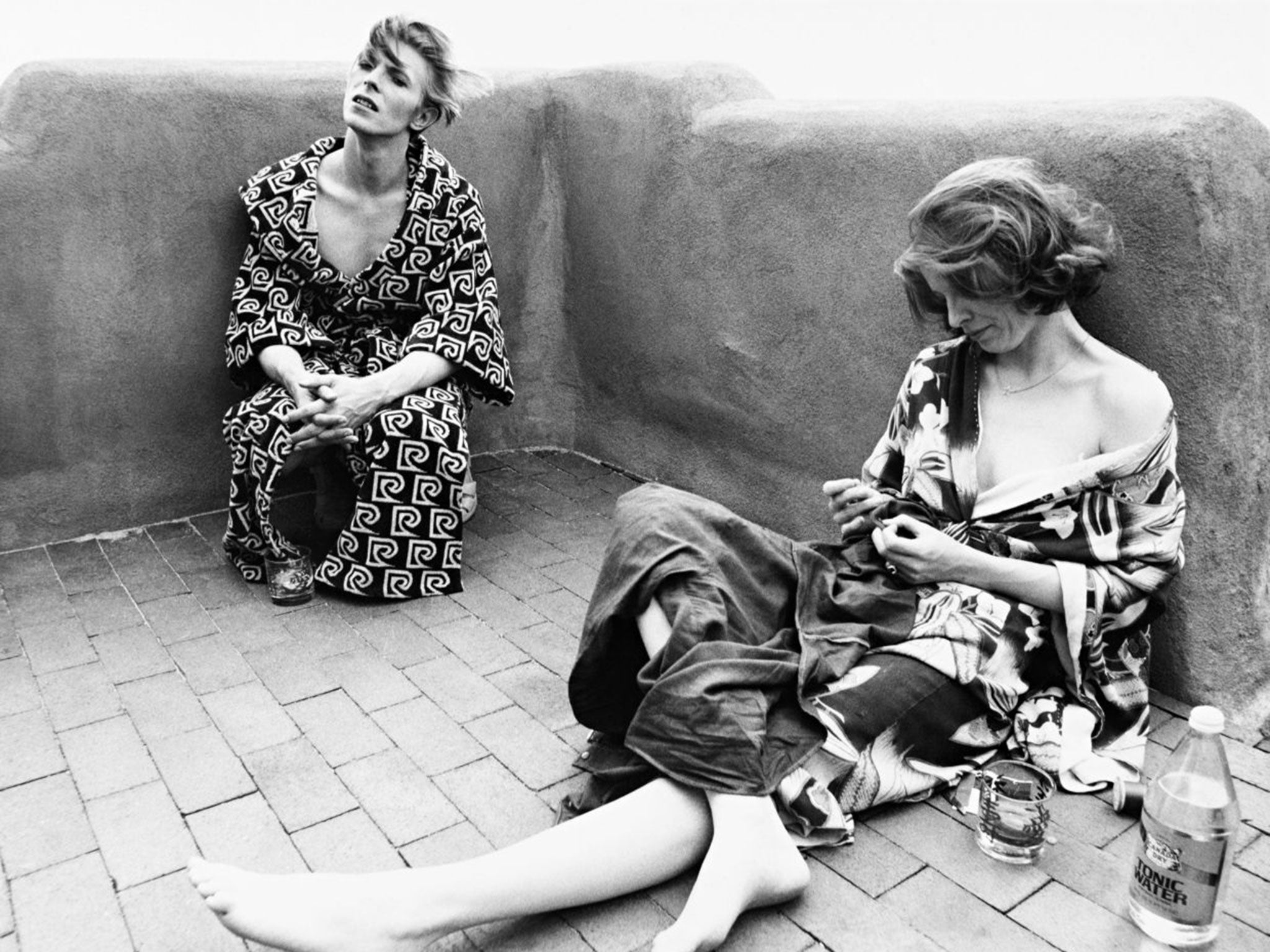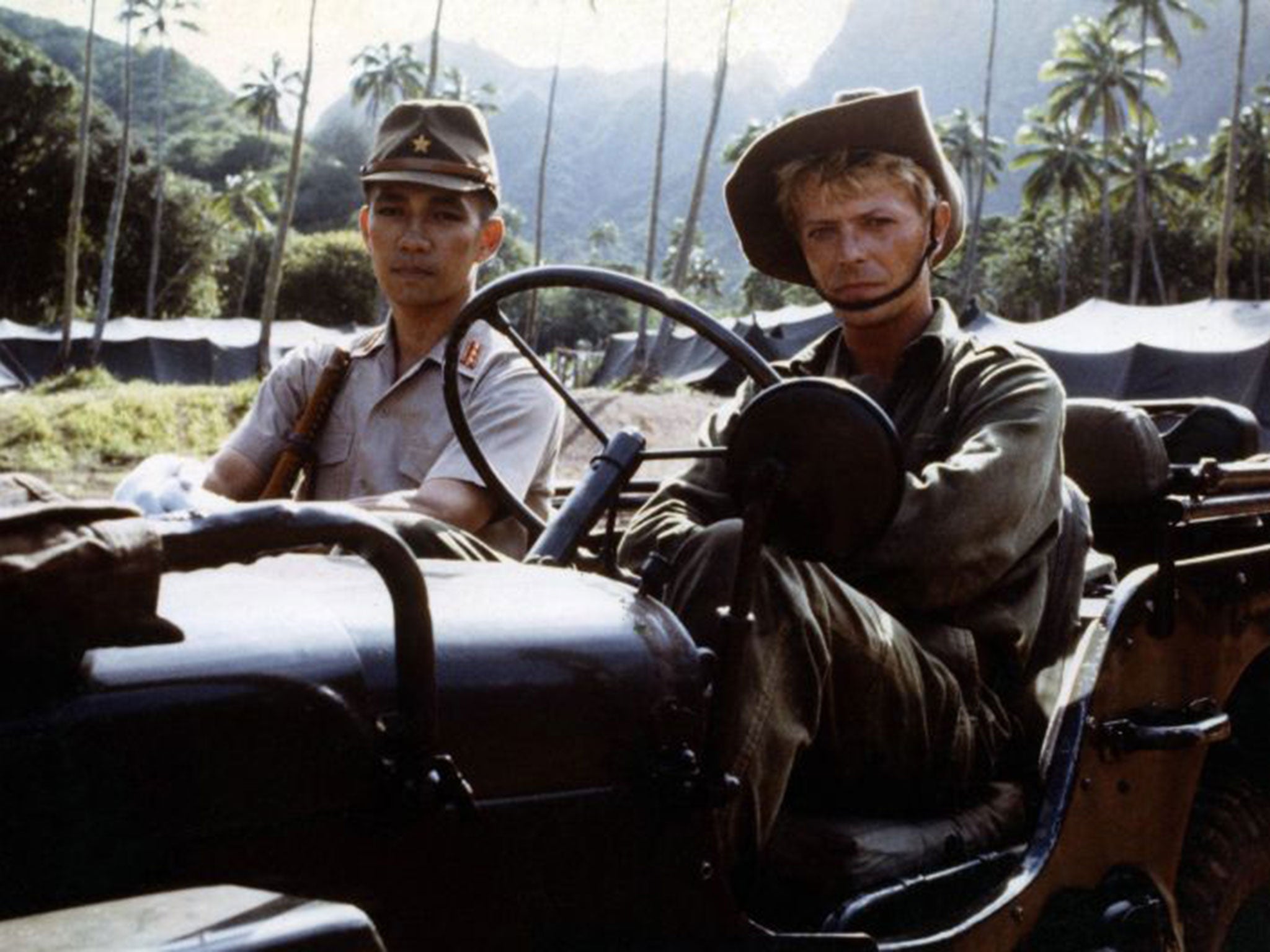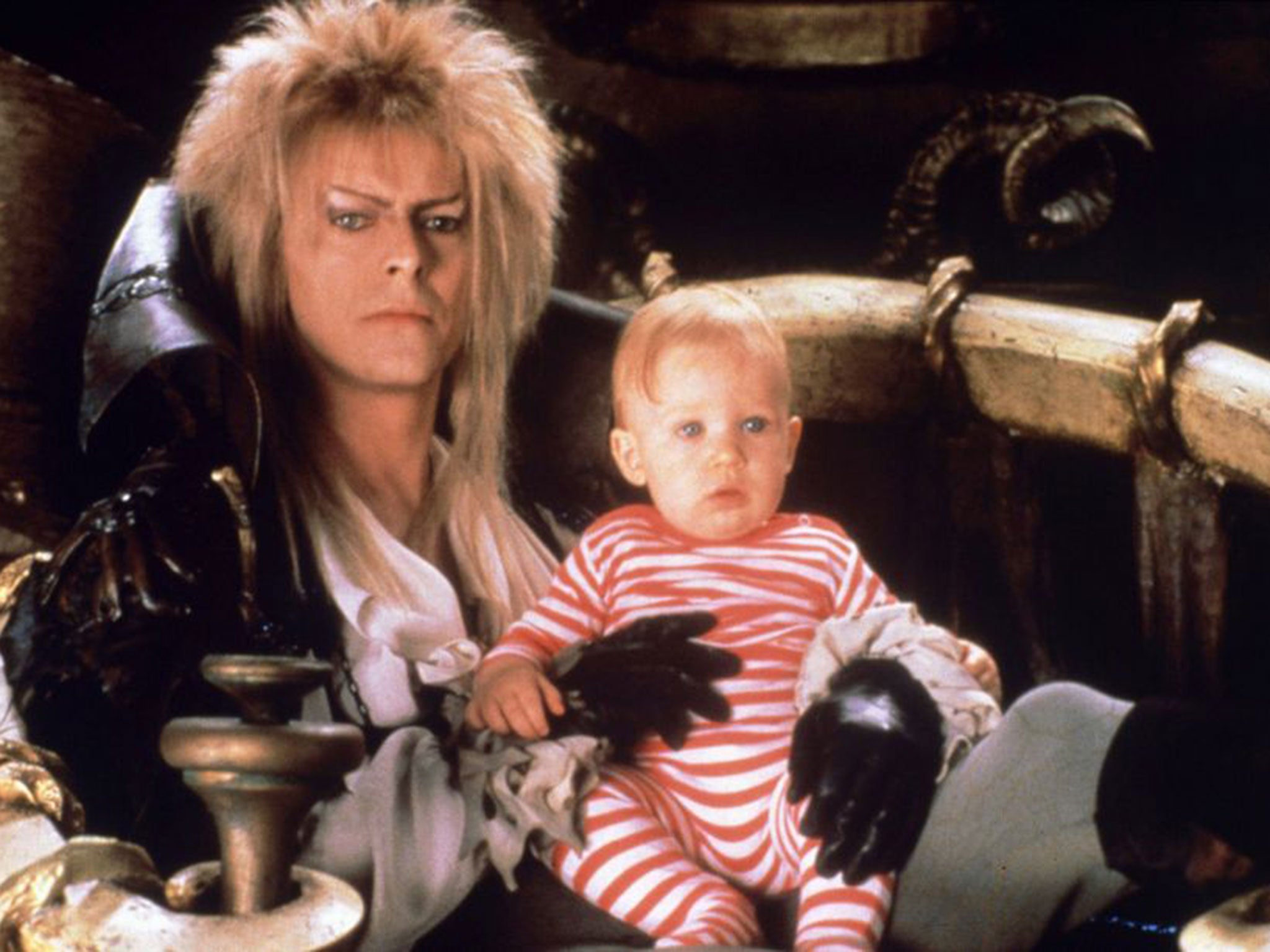David Bowie's film career: His most unforgettable performances from 'The Man Who Fell To Earth' to 'Labyrinth'
As well as taking a huge assortment of roles, his songs can be heard in hundreds of films and often established their mood

Your support helps us to tell the story
From reproductive rights to climate change to Big Tech, The Independent is on the ground when the story is developing. Whether it's investigating the financials of Elon Musk's pro-Trump PAC or producing our latest documentary, 'The A Word', which shines a light on the American women fighting for reproductive rights, we know how important it is to parse out the facts from the messaging.
At such a critical moment in US history, we need reporters on the ground. Your donation allows us to keep sending journalists to speak to both sides of the story.
The Independent is trusted by Americans across the entire political spectrum. And unlike many other quality news outlets, we choose not to lock Americans out of our reporting and analysis with paywalls. We believe quality journalism should be available to everyone, paid for by those who can afford it.
Your support makes all the difference.In a recent BBC documentary Nicolas Roeg: It’s About Time, the filmmaker remembered just when he decided to cast David Bowie in The Man Who Fell To Earth (1976). Roeg had stumbled on Alan Yentob’s TV documentary about Bowie, Cracked Actor, and been startled by Bowie’s other-worldly quality. “Almost from that moment, I couldn’t believe it. I felt this was the man.”
With his preternaturally pale skin, orange hair and chiselled, androgynous features, Bowie looked perfect for the role of Thomas Jerome Newton, the alien who has come to earth to find water for his planet. You get the sense that the make-up department didn’t have to do that much with him. Bowie also played the part beautifully.

Newton was a tragic figure – a stranger in a strange world, trying to rescue his family but who becomes an alcohol-soaked recluse. Bowie himself was in a fragile mental state when he made the film. He played the role with an eerie sensitivity that perfectly complemented Roeg’s elliptical storytelling style. As his co-star Candy Clark later said of him, “He was at the height of his beauty… I thought he looked like he was from another planet and so it was very easy to pretend he was from another planet.”
Bowie gave his second great screen performance, this time with hair bleached blond, as the upper-class army officer Major Jack Celliers enduring torment in a Japanese prisoner of war camp in Nagisa Oshima’s Merry Christmas, Mr Lawrence (1983.) It’s an intriguing role which forced Bowie to push in very different directions. On the one hand, Celliers is stubborn and brave with some of the same characteristics as the stiff upper-lipped British POW played by Alec Guinness in The Bridge On The River Kwai.

He infuriates his Japanese captors with his defiance, even when he is buried up to his neck. At the same time, there is a strong homoerotic undertow running through the film. Bowie’s Celliers exercises a strange fascination on Japanese captain Yonoi (Ryuichi Sakamoto). He plays on this, driving Yonoi to distraction. Bowie also managed to convey his character’s intense and masochistic guilt over his betrayal of his younger brother at his public school many years before.
Bowie excelled in Merry Christmas, Mr Lawrence and The Man Who Fell To Earth partly because he seemed such unusual casting. He wasn’t a conventional movie actor. If he had appeared more frequently in films, his mystique would have diminished. Bowie was at ease in front of the camera. He had learned dance and mime with Lindsay Kemp. He had a physical grace which many more conventional British actors lacked – and, as his Ziggy Stardust persona demonstrated, he could effortlessly project a movie-star-like glamour and charisma on stage.
There were several other screen roles over the years but none that reached the heights of his work with Roeg and Mishima. He played the vagabond poet Baal in a BBC TV production of Bertolt Brecht’s Baal, directed by Alan Clarke. He was the slick advertising exec Vendice Partners in Julien Temple’s Absolute Beginners.
“He [Bowie] was brilliant during the filming,” recalls the film’s producer Stephen Woolley. “He was the most accommodating, gracious and charming person throughout the whole process. We expanded the part once we had cast him in the film. He was a powerhouse of enthusiasm, intelligence and charm.”
Bowie took on a bizarre assortment of exotic roles. He was a Prussian gigolo in Just a Gigolo (1978); a vampire roué in Tony Scott’s The Hunger (1983); a glam-rock looking King of The Goblins in Labyrinth (1986); Pontius Pilate in Martin Scorsese’s The Last Temptation Of Christ (1988); he was cast as Andy Warhol, somebody he famously sung about, in Julian Schnabel’s Basquiat (1996); he played physicist Nikola Tesla in Christopher Nolan’s The Prestige (2006) and he even did some voice work for Spongebob SquarePants. One of his greatest acting triumphs was as The Elephant Man on Broadway.
The musician’s real influence on cinema was as much through his music. Bowie songs can heard in hundreds of films and often established their mood. Uli Edel’s bleak, Berlin-set study of a teenage heroin addict, Christiane F (1981) would be unthinkable without Bowie. It featured the musician in concert footage, had his music on the soundtrack and is a movie of continuing fascination to anyone with an interest in Bowie’s Berlin years of the 1970s. Bowie songs, including “Heroes”, “Space Oddity”, “The Jean Genie”, “Young Americans” and “Let’s Dance”, have all been used in films, either to evoke a time and place or because they give the story an emotional oomph. One of the high points in Bernardo Bertolucci’s troubled teen drama Me And You (2012) comes when we hear Bowie performing the wonderfully emotional and melodramatic Italian version of “Space Oddity”.
The tone for Paul Schrader’s seamy, erotic horror movie Cat People (1982) is as effectively set by Bowie’s theme song, with its line “putting out fire with gasoline”, as it is by the director’s extravagant visuals.
The range of filmmakers who have turned to Bowie is mind-boggling. Quentin Tarantino and Tom Hooper have used his songs. You can find Bowie music in everything from horror movies to comedies, cartoons and TV shows. As for his relatively skimpy filmography as a screen actor, it could be argued that he was just too big and protean a force for the movies. “Bowie’s charisma and presence is so powerful that it has to be the centre of the piece,” suggests Stephen Woolley. “He dominates films and so you can’t cast him as a character actor. He almost demands centre stage.”
Join our commenting forum
Join thought-provoking conversations, follow other Independent readers and see their replies
Comments